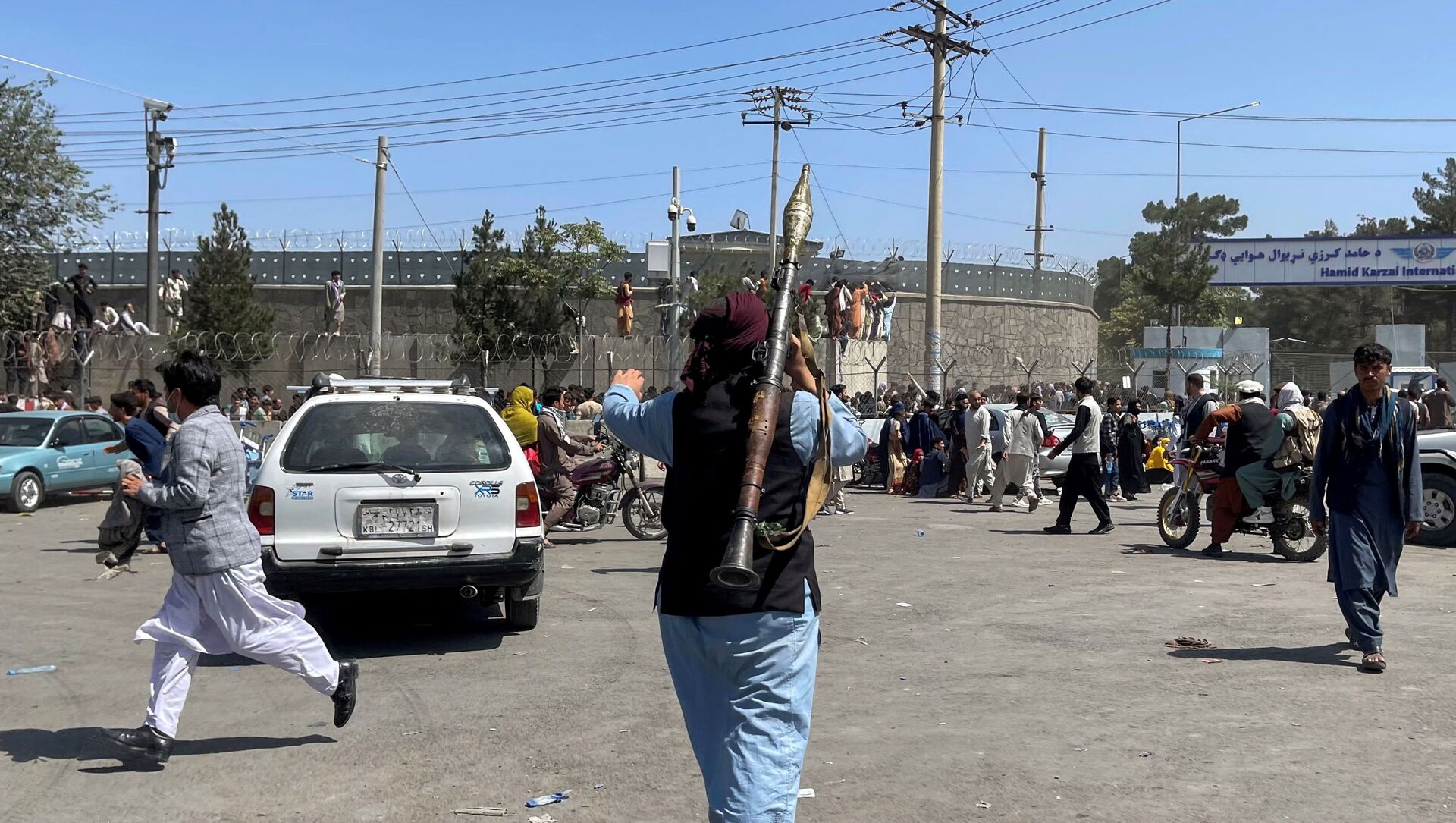Possible Spike in Terror Threats May Emerge Amid Afghan Crisis, Top US General Warns
23:51 GMT 16.08.2021 (Updated: 23:58 GMT 16.08.2021)

© REUTERS / STRINGER
Subscribe
US President Joe Biden previously stressed that the Taliban would not overrun the entirety of Afghanistan on account of Afghan security forces being capable enough to defend their own. However, that sentiment ultimately went into the trash, as the militant group managed to topple the status quo and gain control of the nation with little resistance.
The swift takeover of Afghanistan by the Taliban militant groups may soon enough prompt a sharp increase in potential terror threats in the region, Gen. Mark Milley, chairman of the Joint Chiefs of Staff, recently warned.
The eyebrow-raising revelation was made by Milley during a Sunday phone briefing on the Afghanistan developments with officials from both the White House and a bipartisan group of US lawmakers.
Sources familiar with the briefing told Axios that the call specifically included Milley, US Defense Secretary Lloyd Austin and Sen. Lindsey Graham (R-SC), among other officials. However, it was Graham who raised the question on whether a June threat assessment would need to be revised in light of the latest developments.
That past review determined the risk of terrorist groups reconstituting in Afghanistan stood at a “medium” threat level, with Austin explaining during a Senate Appropriations Committee hearing that “it would take possibly two years for them to develop that capability.”
“If certain other things happen, if there was a collapse of the government or dissolution of the Afghan security forces, that risk would obviously increase, but right now I’d say medium and about two years or so,” Milley, who was also present during the hearing, remarked weeks before the Taliban gained control of the nation.

Chairman of the Joint Chiefs Chairman Gen. Mark Milley testifies before a Senate Appropriations Committee hearing to examine proposed budget estimates and justification for fiscal year 2022 for the Department of Defense in Washington on Thursday, June 17, 2021.
© AP Photo / Caroline Brehman
With Milley indicating on Sunday that officials would indeed need to revisit the June review, the general went on to note that he would be more than happy to expand on a new assessment in a classified setting.
The trio of Biden administration officials were also badgered with questions about the removal of more than 20,000 Afghans who sought to leave the country amid the American troop withdrawal. One source who was on the Sunday call predicted to Axios that the US is “gonna leave tens of thousands of people behind.”
Incidentally, Pentagon spokesperson Adm. John Kirby informed reporters during Monday's briefing that the US fully intends to complete the evacuation of embassy personnel, US citizens and Afghan facilitators by the August 31 deadline imposed by US President Joe Biden.
Evacuations of Afghan visa holders are expected to increase once US officials are able to secure Hamid Karzai International Airport, which was overrun with citizens trying to board US military planes.
Garry Reid, who serves as the director for defense intelligence and is tasked with evacuating visa-carrying Afghans, revealed that the Pentagon is aiming to fly between 20 and 30 daily airlifts that will transport approximately 5,000 people.
The unraveling situation in Afghanistan comes shortly after Biden and company repeatedly stressed that US-trained Afghan forces would be able to hold off an offensive from the Taliban.

